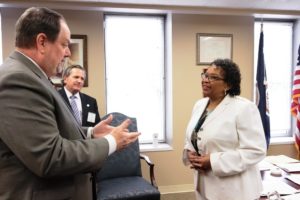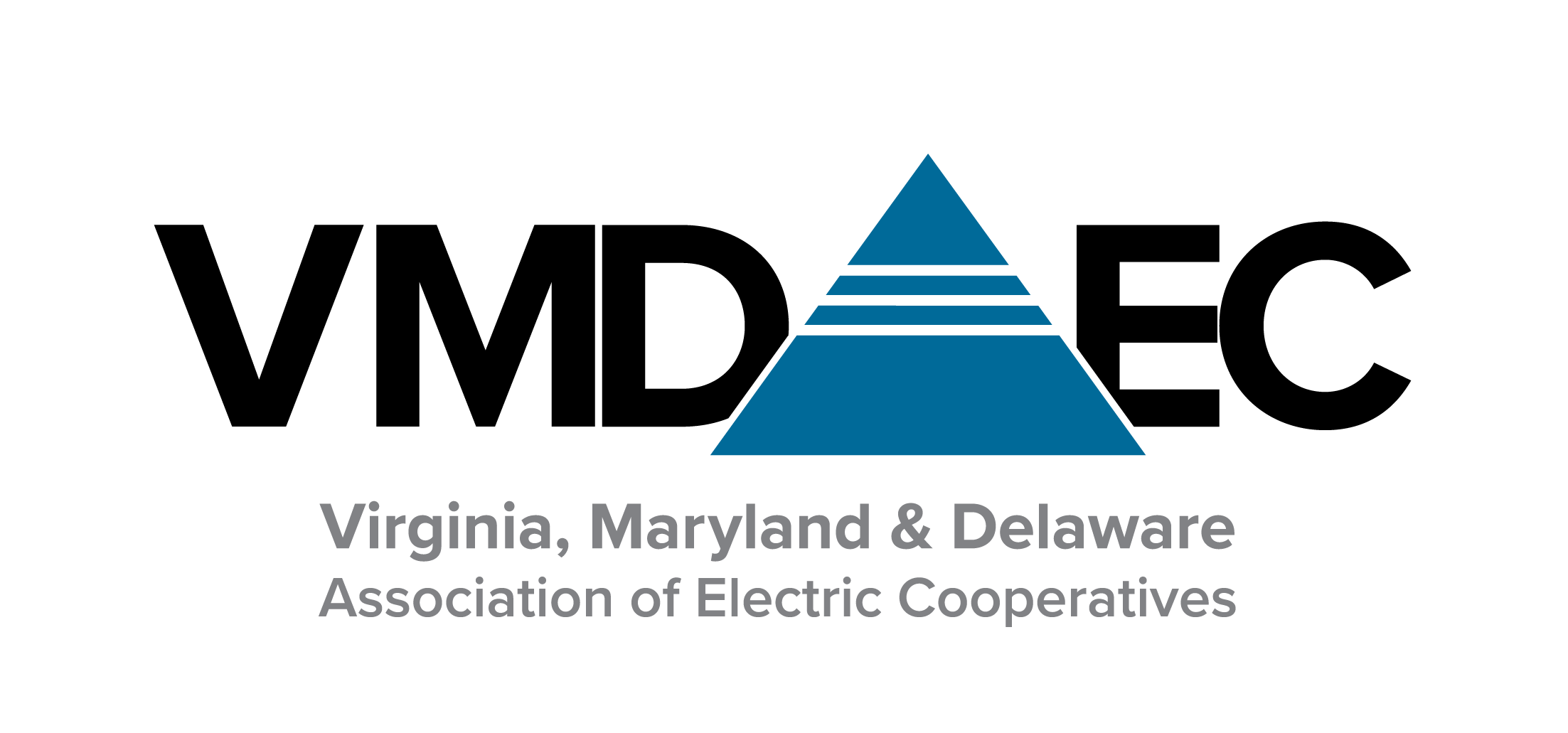There’s strength in numbers and nowhere was that more evident than in Richmond on Jan. 28 as about 120 electric cooperative leaders from across Virginia gathered for the annual Legislative Day sponsored by the Virginia, Maryland & Delaware Association of Electric Cooperatives.

John C. Lee Jr., president and CEO of Mecklenburg Electric Cooperative, discusses co-op isues with Del. Roslyn Tyler. (Chris Zimmer photo)
Co-op CEOs, directors and key staffers advanced from office to office in the Pocahontas Building, home to the General Assembly while its office building is under reconstruction.
“We were delighted at the turnout for this very important day of interacting with members of the General Assembly and delivering our position on important issues and our positive message about how the cooperative business model is benefitting their constituents and all Virginians,” said Richard G. Johnstone Jr., president and CEO of the VMD Association.
Throughout the day, co-op representatives briefed lawmakers and their key aides about issues in which their systems are actively engaged, such as renewable energy development and facilitating the expansion of broadband in rural Virginia.
“It’s an important day for us in Richmond to meet with our delegates and senators and make sure they understand the importance of some of the legislation for the co-ops,” said Gary Wood, president and CEO of Central Virginia Electric Cooperative.
Key subjects for 2020 include a change that will make it easier to deliver high-speed internet by enabling providers to use existing utility easements for broadband expansion.
The House bill is H.B. 831, patroned by Del. Jennifer Carroll Foy, and the Senate version is S.B. 794, patroned by Sen. Lynwood Lewis.
“These bills are about bringing certainty to broadband expansion issues,” said Sam Brumberg, VMD Association Counsel, saying they could facilitate speedier broadband buildouts in rural areas. Co-ops have built a strong alliance with other organizations in support of the action, he added.
Additionally, as legislators debate broad energy reform issues, cooperatives are urging them to recognize the landmark changes that co-ops made in solar and renewable energy during the 2019 General Assembly session.
Those successes include increasing the net metering in cooperative service territories to 5%, as well as opening cooperative service territories to financing through third-party power purchase agreements.
Andrew Vehorn, VMD vice president of governmental affairs, said it’s important any reform package preserves those gains and protects the unique status of co-ops, especially in legislation that is more targeted toward investor-owned utilities.
Vehorn and Brumberg added that an educational effort is ongoing, as well, to share with elected officials more information about the member-owned, not-for-profit structure of electric cooperatives, since substantial turnover in the General Assembly in recent years means many delegates and senators are not familiar with the cooperative business model or co-op issues.
“We inform them about how we are different,” Vehorn said. “Being an electric cooperative grounds us in the community. We are a much more valuable advocacy arm because of who we are and how we operate.”
During Legislative Day, co-ops got a positive response in the offices they visited.
“I’m a huge supporter of Virginia’s electric cooperatives because they’re actually owned by the members,” said Sen. Joe Morrissey, who met with a delegation from Prince George Electric Cooperative, headed by Casey Logan, its president and CEO.

